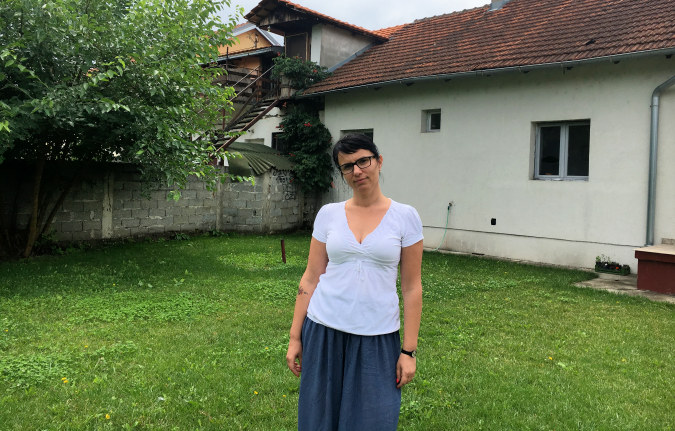In Serbia, mothers and their children with disabilities find hope in jam
By making jam, a woman-run organization is earning money to improve the inclusion of children with disabilities, while also building a whole community of support and encouragement.Date:
With the first days of strawberry season, a woman-run social enterprise, Evo Ruka, which grows fruits and vegetables, is turning into a hub for strawberry jam production, using a recipe based on a traditional Serbian ‘granny's’ one.
Not only is Evo Ruka a social enterprise focused on growing fruit, vegetables as well as making jams and juices, it is also a centre for children with disabilities and their parents, mostly mothers.
This year, the UN Women team in Serbia joined in, buying the necessary equipment, and helping out with jam making, joined by the EU Delegation to Serbia as well as mothers and their children with disabilities, producing 150 jars of jams from 100 kilograms of strawberries. Evo Ruka will put the money raised from local community jam sales towards their core activities, which are aimed at supporting and promoting the inclusion of children with disabilities.

In 2011, Ana Knezevic, a single mother with a 14-year-old son with a disability, founded this one-of-a-kind centre in Zemun Polje, near Belgrade, Serbia. Being on her own, with no support, she decided to start an organization aimed at changing attitudes in society and ensuring a good quality of life for her child and others living with disability. Since then, she has experienced many obstacles.
"I have come across a lot of barriers, and they were often coming from those who were in the same or similar position as me. They did not believe in change, especially if they had an older child with disability, but at the end of the day all these parents who opposed it and did not believe in change came here and loved it," said Knezevic.
Read the full story on UN Women's website for Europe and Central Asia